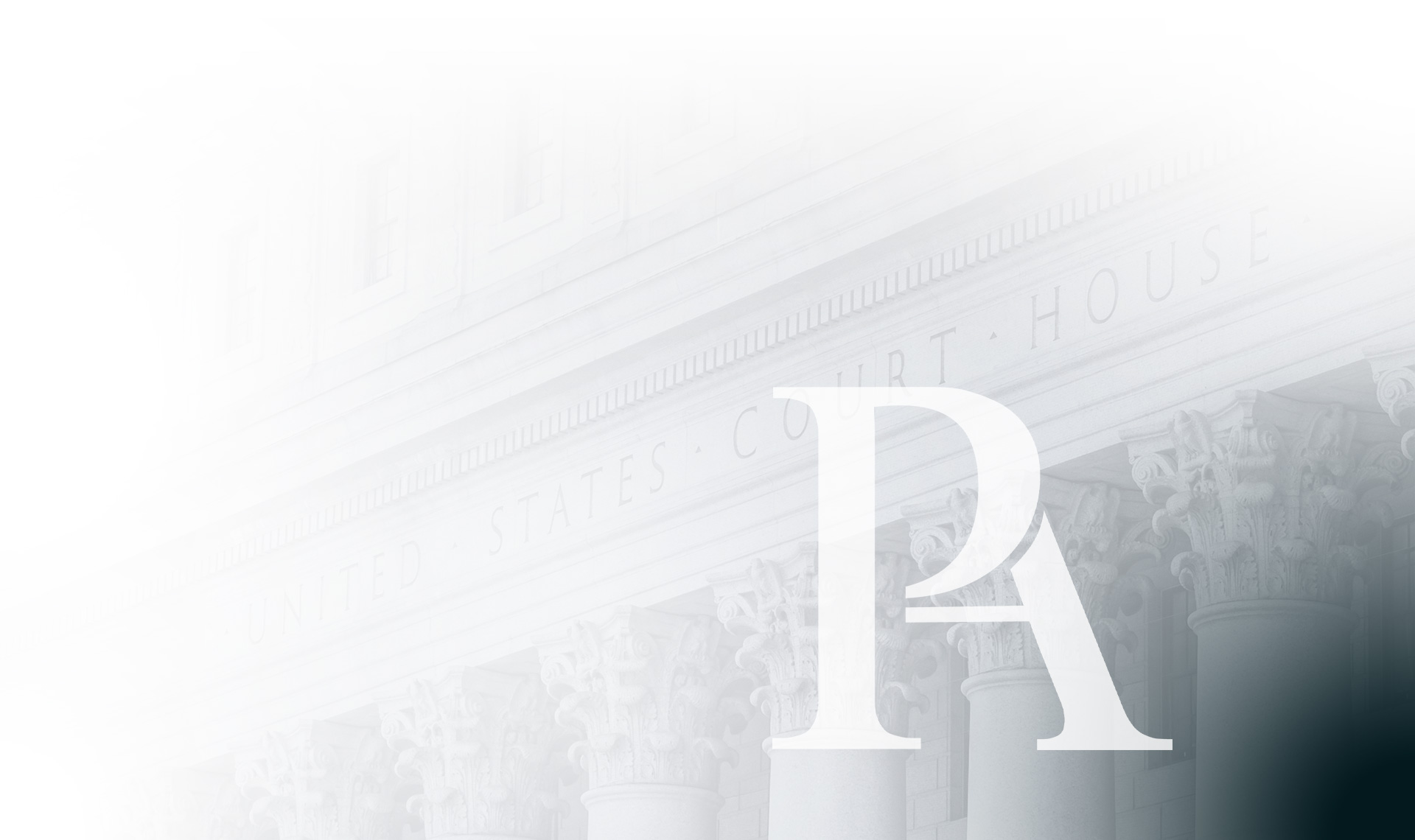Filing a Whistleblower Retaliation Complaint in Washington, D.C.
If you believe that your employer has retaliated against you for protected whistleblowing, you can file a formal complaint with the US Office of Special Counsel (OSC). The OSC is an independent agency whose job is to investigate and prosecute allegations of “prohibited personnel practices” (PPP) by federal employers.
When deciding on a whistleblower complaint, the OSC will look for evidence that the whistleblowing was a contributing factor in the adverse personnel action threatened or taken against you. They will also consider whether the agency can demonstrate “by clear and convincing evidence” that it would have taken the same action against you in the absence of your whistleblowing.
If the OSC’s investigations conclude that whistleblower retaliation occurred, they may order corrective or disciplinary action.
Several forms of relief you may receive include:
- Reinstatement to your former position
- Restoration to your role
- Reversal of suspensions and other adverse actions
- Lost wages and back pay
- Reasonable and foreseeable consequential damages, (e.g., medical costs, attorney’s fees, and compensatory damages)
In the case that the OSC does not satisfactorily resolve your case, you may proceed with an Individual Right of Action (IRA) appeal with the Merit Systems Protection Board (MSPB). However, you must first have filed a claim with the OSC before considering any other alternative option like an IRA appeal.
Understanding the complaint process is essential, not only for navigating it effectively but also for ensuring your rights are comprehensively addressed at each stage. Our firm can assist in crafting a well-documented complaint that outlines the nature of the retaliation and the evidence supporting it. This documentation is crucial for the OSC's assessment and further legal proceedings, should they be necessary.
Steps for Filing a Whistleblower Complaint in Washington, D.C.
Filing a whistleblower complaint in Washington, D.C., involves several vital steps to ensure it's both accurate and effective. The first step is gathering all relevant documentation, including emails, memos, and any evidence that supports your claims of misconduct. It's important to detail the nature of the misconduct, the individuals involved, and the timeline of events.
Once documentation is complete, submit your complaint to the OSC, ensuring it's detailed and factual. Our attorneys at Pitre & Associates will work closely with you to ensure every aspect of your complaint is thoroughly vetted and accurately presented. If the OSC's assessment is not favorable, our firm is prepared to represent you in subsequent legal actions, such as an IRA appeal, to protect your rights and seek justice.
Frequent Mistakes in Whistleblower Cases & How to Avoid Them
Whistleblower cases often involve complex legalities that can easily trip up individuals unfamiliar with the process. One common mistake is failing to provide sufficient evidence of the misconduct or inadequate documentation of the retaliation. Gathering comprehensive records and maintaining a clear timeline of events are critical for building a strong case.
Another frequent error is delaying the filing of a complaint. Whistleblower laws have strict timelines, and missing these deadlines can impede your ability to seek justice. Working with knowledgeable attorneys at Pitre & Associates can help avoid these pitfalls by ensuring that your case is timely and robustly presented. We commit to transparent communication, guiding you through your legal journey efficiently and effectively.
Take Legal Action with the Help of Pitre & Associates, LLC
If your employer has retaliated against you for whistleblowing, they have infringed upon your federal rights, and you can take legal action against them. Pitre & Associates, LLC supports federal employees throughout Washington, D.C., and all across the country, protecting them from unlawful removal and suspension simply for exercising their civil rights.
Let the reputable and experienced attorneys at the firm help you file a whistleblower retaliation complaint with the OSC and protect your rights under the WPA.
Schedule a free consultation with Pitre & Associates, LLC today to get started immediately. Let's assert your whistleblowing rights and protect your future.
The Whistleblower Protection Enhancement Act (WPEA), enacted in 2012, significantly strengthened the protections for federal employees who report misconduct or violations of law, including fraud, waste, abuse, and mismanagement. The WPEA was designed to close loopholes in earlier whistleblower protection laws and provide clearer and more robust safeguards against retaliation for whistleblowers.
Under the WPEA, federal employees who report violations are entitled to stronger protections, including:
- Expanded Definition of Protected Disclosure: The WPEA expanded the types of disclosures that qualify as protected, including those related to waste, fraud, abuse, and violations of law.
- Improved Remedies for Retaliation: Whistleblowers now have greater access to remedies, including back pay, reinstatement, and compensation for damages caused by retaliation.
- Access to the Merit Systems Protection Board (MSPB): The WPEA allows whistleblowers to appeal retaliation cases to the Merit Systems Protection Board (MSPB) and provides expedited procedures for these appeals.
- Prohibition of Non-Disclosure Agreements: It restricts agencies from using non-disclosure agreements or other means that could silence whistleblowers or prevent them from reporting misconduct.
- Protections for Contractor Employees: The WPEA extends whistleblower protections to employees of contractors, subcontractors, and grantees of federal agencies, ensuring broader coverage.
The WPEA reinforces the rights of federal employees to report violations safely, ensuring that whistleblowers are shielded from retaliation and that their disclosures contribute to greater transparency and accountability in the federal government. If you are a federal employee facing retaliation for whistleblowing, it’s essential to understand these protections and consult with a whistleblower attorney in Washington, D.C. to ensure your rights are enforced.
How to File a Whistleblower Retaliation Claim in Washington D.C.
If you believe that your employer has retaliated against you for protected whistleblowing, you can file a formal complaint with the US Office of Special Counsel (OSC). The OSC is an independent agency whose job is to investigate and prosecute allegations of “prohibited personnel practices” (PPP) by federal employers.
When deciding on a whistleblower complaint, the OSC will look for evidence that the whistleblowing was a contributing factor in the adverse personnel action threatened or taken against you. They will also consider whether the agency can demonstrate “by clear and convincing evidence” that it would have taken the same action against you in the absence of your whistleblowing.
If the OSC’s investigations conclude that whistleblower retaliation occurred, they may order corrective or disciplinary action.
Relief Options for Victims of Whistleblower Retaliation
- Reinstatement to your former position
- Restoration to your role
- Reversal of suspensions and other adverse actions
- Lost wages and back pay
- Reasonable and foreseeable consequential damages, (e.g., medical costs, attorney’s fees, and compensatory damages)
In the case that the OSC does not satisfactorily resolve your case, you may proceed with an Individual Right of Action (IRA) appeal with the Merit Systems Protection Board (MSPB). However, you must first have filed a claim with the OSC before considering any other alternative option like an IRA appeal.
Common Types of Whistleblower Complaints in Federal Employment
Federal employees file OSC complaints for a wide range of misconduct, including:
- Government fraud: Reporting fraudulent use of taxpayer funds, such as false billing or embezzlement.
- Waste, mismanagement, and abuse: Exposing government waste, corruption, or improper use of authority within federal agencies.
- Discrimination: Reporting discriminatory practices based on race, gender, disability, or other protected classes.
- Violation of federal laws and regulations: Bringing attention to violations of environmental laws, safety regulations, or other federal rules that endanger the public or violate citizens’ rights.
- Sexual harassment: Reporting sexual harassment in the workplace or failure by federal agencies to take appropriate action against harassment.
At Pitre & Associates, our Washington D.C. retaliation lawyers specialize in protecting federal whistleblowers who expose these types of misconduct and ensuring they do not face retaliation for standing up for what’s right.
The complexity of whistleblower complaints often involves navigating the nuances of federal law and understanding the procedural requirements that accompany filing such claims. Our lawyers are adept at rallying legal arguments and substantiating claims with compelling evidence to ensure the complaint's strength, seeking both redress and corrective measures within the federal framework.
Frequently Asked Questions
What Kind of Evidence Do I Need to Support My Whistleblower Claim?
When filing a whistleblower claim, the strength of your evidence can significantly affect the outcome. It's crucial to gather as much documentation and proof as possible. This may include emails, text messages, voicemails, and other communications that illustrate the wrongdoing or your attempts to report it.
Additionally, witness testimonies from colleagues who are aware of the misconduct can support your claims. Keeping a detailed log or journal that records dates, times, and specifics of incidents and retaliatory actions is also advisable. Photographic or video evidence can be invaluable, assuming they're obtained legally. Our attorneys at Pitre & Associates are adept at helping clients organize and present evidence to strengthen their claims with the help of a whistleblower lawyer in Washington, D.C.
How Long Do I Have to File a Whistleblower Retaliation Complaint?
Timeliness is critical when filing a whistleblower retaliation complaint. Generally, you must file within a specific window of time after the retaliatory action occurs. The exact time frame can depend on several factors, including the specifics of your case and applicable state or federal laws.
Delays can negatively impact your case, making it imperative to seek legal guidance promptly. The team at Pitre & Associates is dedicated to assisting clients in understanding these timelines and acting swiftly to ensure the best possible outcome with a whistleblower attorney.
What Should I Do If My Whistleblower Case Is Denied by the OSC?
If your case is denied by the OSC, it's important to remember that this isn't the end of the road. You have the option to pursue an Individual Right of Action (IRA) appeal with the Merit Systems Protection Board (MSPB). This process can be daunting, but our law firm stands ready to guide you through each step.
We will evaluate your case, identify any areas of concern, and develop a strategy to present a compelling appeal to the MSPB. Our commitment to client advocacy and our comprehensive understanding of whistleblower rights underscore our approach to achieving favorable outcomes for our clients in Washington, D.C.
Can I File a Whistleblower Complaint Anonymously?
Filing a whistleblower complaint anonymously can be complex and not always feasible, particularly when legal action requires your testimony. While initial reports can sometimes be made anonymously, maintaining anonymity throughout the investigation and any subsequent legal proceedings can be challenging.
It's crucial to work with legal counsel that understands the nuances of whistleblower law and can advise on the best path forward to protect your identity while effectively advocating for your rights. Pitre & Associates is equipped to provide such guidance, prioritizing confidentiality and your safety throughout the process.
How Does Washington, D.C., Differ from Other Jurisdictions in Handling Whistleblower Cases?
Washington, D.C., has a unique legal landscape given its status as the seat of the federal government. This brings a heightened level of complexity and scrutiny to whistleblower cases. The District has specific statutes and protections that may differ from other states, and federal employees in D.C. might find themselves navigating local laws in addition to federal regulations.
Our firm leverages deep knowledge of these particularities, ensuring that we tailor our approach to the specific legal environments that affect our clients. This local insight is a critical factor in successfully managing and navigating whistleblower cases with a lawyer in Washington, D.C.




